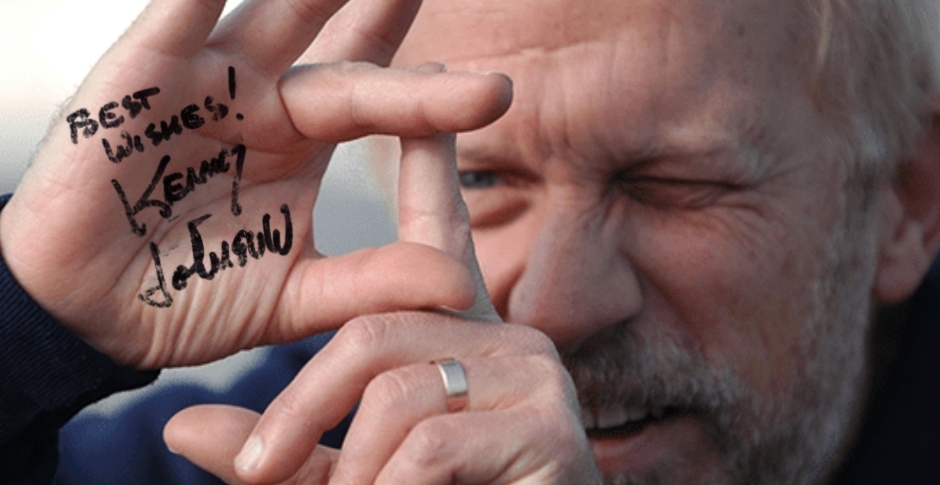Kenneth Johnson: Regarding what is going on in our country with Trumps activity, it’s exactly the sort of warning that I was doing metaphorically in my original V.
Written by Eva Csölleová, Vítek FormánekWhen we watched the V series sometimes in 1986 on pirate videotapes with one voice-over, we were stunned how brilliantly it was made and how deep the idea was. It hasn´t dated during those 40 years and we still love it with same passion. We never ever dreamt about making interview with its´ director, but when he was so nice and helpful, it would have been a sin to miss the chance.
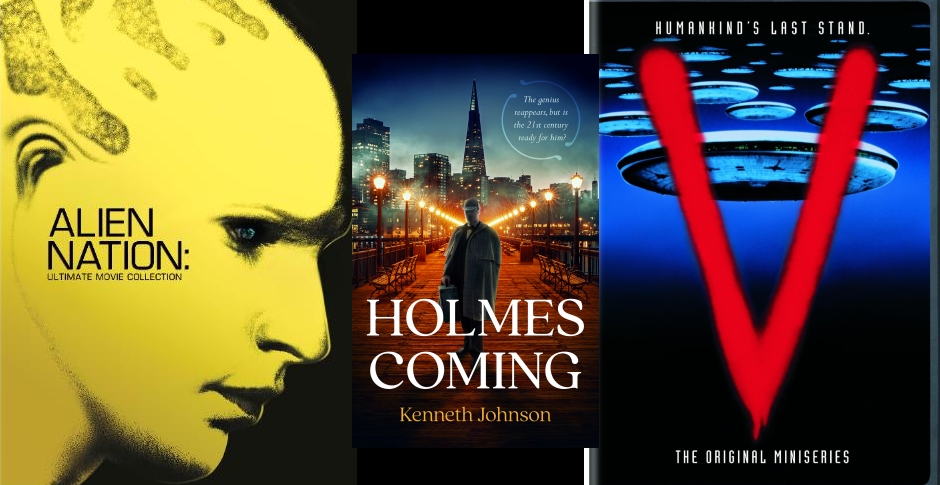
Have you ever visited Czech Republic as a tourist or director?
Yes, I have been to Prague and what an amazing city it is. I was very excited to see the astronomical clock which I had written about in my novel The Man of Legends. Also, in my novel the astronomer Tycho Brahe has an important scene.
Actually, was you father fighting in WWII?
My father was a lieutenant colonel in the army core of engineers during World War II. He helped to design and build the largest arsenal in the United States in our hometown of Pine Bluff Arkansas. A later served at the Pentagon near the end of the war.
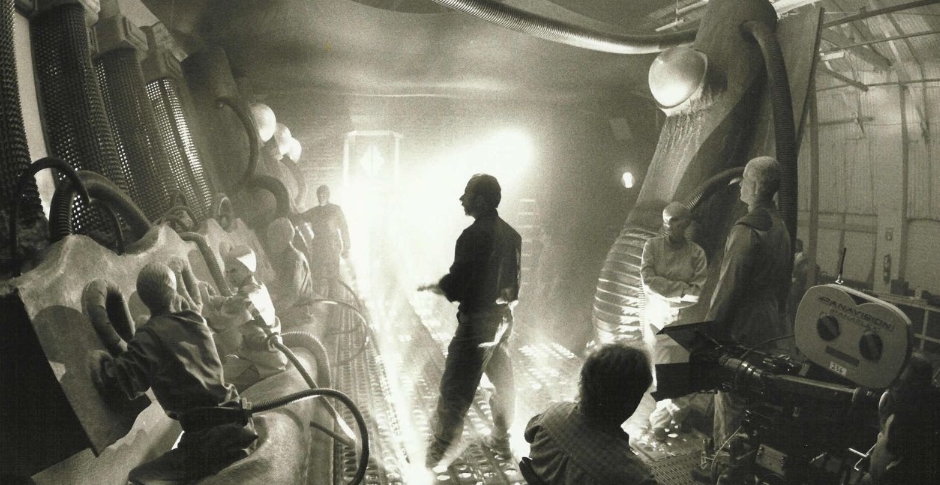
Was it your childhood dream to become a director and you spent much time in cinemas in late 40´s and 50´s?
From the time I was 15 I was determined to be in the theater. My desire to get involved in movies came later during my years in the legendary department of drama at Carnegie Mellon University. While there, I met Bill Pence who ran the college film society and had me take it over when he graduated. Bill went on to create the famed Telluride Film Festival in Colorado. When I decided to make my first film while still in college, I called for his help because the school had no filmmaking equipment and he was running a film division in the Air Force at that time. He “borrowed” a camera from them and sent it along with several thousand feet of negative film stock. I always referred to Bill as the godfather of my career. And the novel I mentioned above is dedicated to him and his wife Stella.
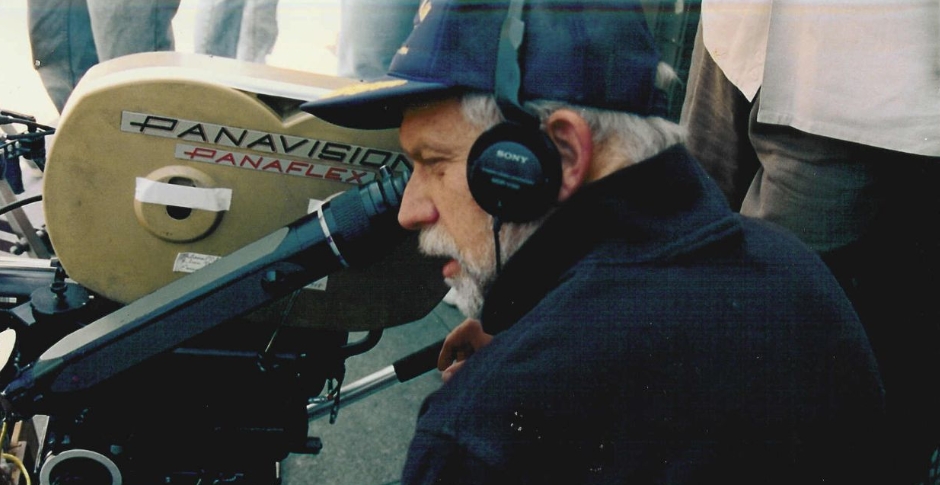
Have you seen any Czech film either from New Wave in 60´s or some current ones?
I had always been a movie buff… But Bill introduced me to the art of cinema. And I saw nearly 300 of the greatest classic international films. I’m sure there must’ve been a Czechoslovakian film among them.
Was it difficult and uncertain career to become a director in America in 60´s, not much support and too many rules and red tape?
I think that any career in the arts is always an uphill battle. In many ways it is a “gypsy business”… Where are you come into town put on a show and then head off to the next town to do another show.
You studied at Technology College so you don´t have any film or art education and are self-made man, learnt as you walked?
When I went to Carnegie Institute of Technology (now Carnegie Mellon University) it was of course an engineering school. But it also had an extremely robust college of fine arts with a truly legendary department of drama which had been famous in the theater world since the 1920s.
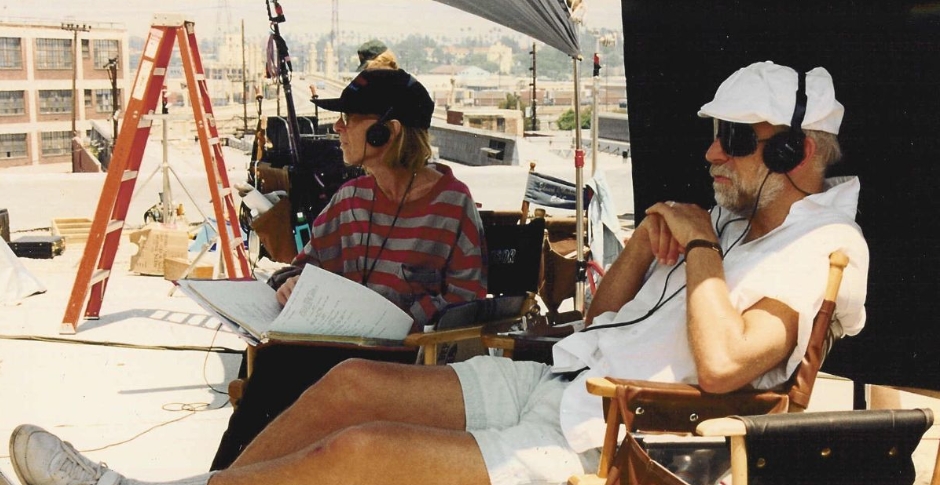
You only filmed sci-fi series for TV, never a feature movie for a cinema. Did you become an expert in it or you were typecast so got no chance to film anything else by film studios and it also became a steady paid job, no risks of a flop?
I always tell my filmmaking students to be very careful what their first success is because that’s what Hollywood will want them to do for ever after. It’s very easy to get typecast and I certainly have been, although I have done many other projects that were not science fiction for television.
I think that any career in the arts is always an uphill battle
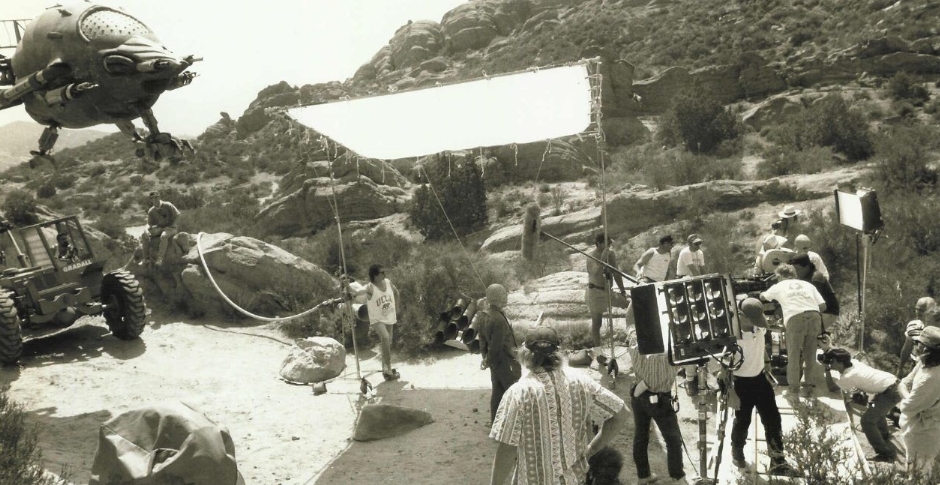
Your most famous work is V, adapted from Sinclair Lewis´ book published in 1935. What was the main story you picked up from the book since I didn´t find much resemblance to it?
The basic idea I took from Sinclair Lewis‘s novel was merely the notion of a fascist uprising in the United States happening as it had in Germany in the 1930s. And how individual ordinary people would react to that.
I think the V serie was very well written and very well filmed, no special effects, just believeable actors permormance. It do feel it could be a hit? Were you surprised by the big success of V when it came out?
One of the absolute highlights of my writing/producing/directing career was when I sat in a screening room with one of the editors and looked at the very first rough cut of V over at Warner Brothers. There were no special effects in it. It was just the actors performing the story. 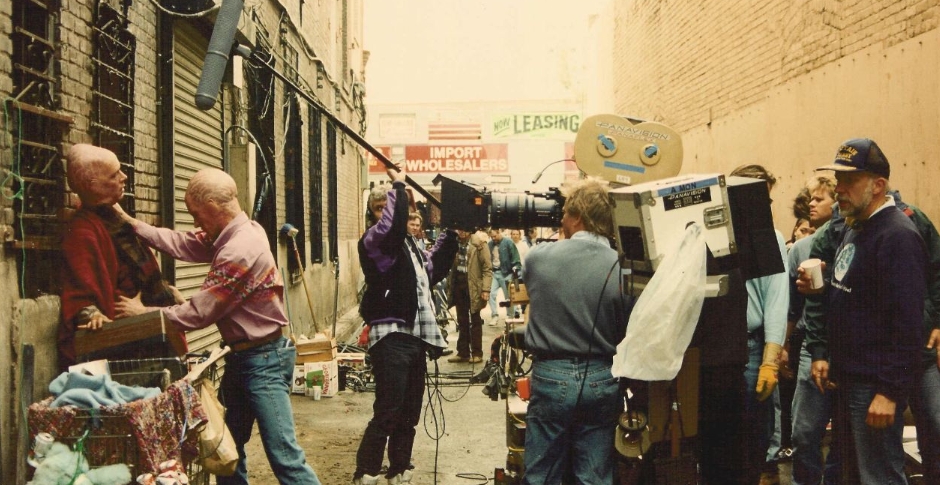 And the drama was so intense and so potent, and all of the performances across the board were just so spot on, that I was incredibly excited about the prospects of it. It was 4 hours 15 minutes long and president of NBC told me I have to cut of 15 minutes. And I really didn´t know what should be cut off not to destroy it so I call him to come and tell me. He came and watched it and when he came out he told me he must talk to stations to get extra 15 minutes which was unprecedented in the history of network television. We also had brilliant promotion campaign for it. Big billboards and posters that didn’t say anything about the film. It just said “The Alien Visitors. Our Friends”. They were crafted after the Nazi propaganda posters, such as Germans had put up across Europe in World War 2. A week after the posters went up, we sent out crew of kids with cans of spray paint, and they sprayed a big red V right over the poster, like the resistance did in Europe in World War 2. And then the last week right before the show aired, we just added a little banner on the corner on the billboard that said “The battle begins on NBC”, along with the date and the time. By the time the show went on the air, we were pretty sure it was going to do pretty well. I was pretty stunned to see that it brought in an audience of over 80 million viewers in North America.
And the drama was so intense and so potent, and all of the performances across the board were just so spot on, that I was incredibly excited about the prospects of it. It was 4 hours 15 minutes long and president of NBC told me I have to cut of 15 minutes. And I really didn´t know what should be cut off not to destroy it so I call him to come and tell me. He came and watched it and when he came out he told me he must talk to stations to get extra 15 minutes which was unprecedented in the history of network television. We also had brilliant promotion campaign for it. Big billboards and posters that didn’t say anything about the film. It just said “The Alien Visitors. Our Friends”. They were crafted after the Nazi propaganda posters, such as Germans had put up across Europe in World War 2. A week after the posters went up, we sent out crew of kids with cans of spray paint, and they sprayed a big red V right over the poster, like the resistance did in Europe in World War 2. And then the last week right before the show aired, we just added a little banner on the corner on the billboard that said “The battle begins on NBC”, along with the date and the time. By the time the show went on the air, we were pretty sure it was going to do pretty well. I was pretty stunned to see that it brought in an audience of over 80 million viewers in North America.
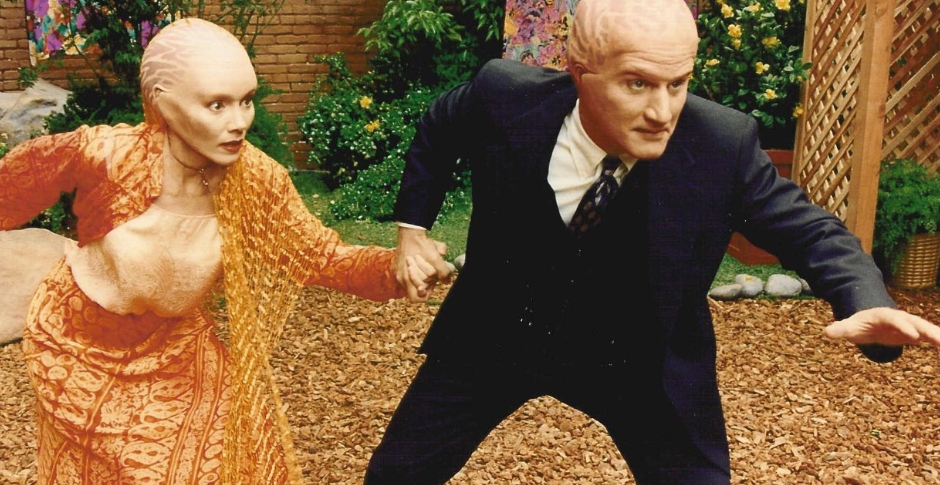
With so many viewers watching your series, did you realize how powerful medium film is and did you feel some kind of responsibility?
Of course, there is big amount of responsibility that goes with making films, since it has the opportunity to reach millions and millions of people, and hence it is very important to consider always what you’re putting into film. One of the things I tell my filmmaking students is always to think about all those millions of people that are going to cinemas watch their film and what it is they want tell them by it. There’s a lot of money to be made in violent films, but I always urge them to try and reach higher and something more meaningful than that. To try and emulate the great humanistic film makers and what they choose to put into their movies; they’d choose wisely.
To me the V series was the best sci fi serie I have ever seen and I liked that the characters were as in real life- heroes, traitors, fifth column, arselickers, coward people etc etc. I think that was slowly diluted in sequels filmed two years later. Did the script writers run out of steam and TV only wanted to milk money and get ratings so they pressed on irregardless?
I supervised the writing of the sequel that ultimately became known as The Final Battle. It was written by myself, Greg Buck, Peggy Goldman and Diane Frolov. It was a massive piece of work. It was in many ways better than the original 4 hours had been. After I left the show, all of my actor friends and crew friends, who continued to work on it, told me that I should never see what was being made, because it was very, very different than the script that we had written. Over the years I’ve only ever seen about 30 seconds of it. And in those 30 seconds I watched them make every wrong choice that they could possibly make and I never saw any of the 1985 series that was then produced, and of the current television series that has most recently been on ABC. I do however own and control the motion picture right to V so when there were talks about feature film V we had a lot of meetings with all of the major studios, but they wanted to do it different way and headed different direction than I wanted to go. They saw it more of a popcorn, big summer blockbuster kind of movie. And they were really missing the essence of what made V so special, that fact that it really was a human drama, the fact that it was not an invasion picture, but a picture about occupation, and the paranoia and suspense and stress that that brings to people´s lives, which was always the story I wanted to tell.
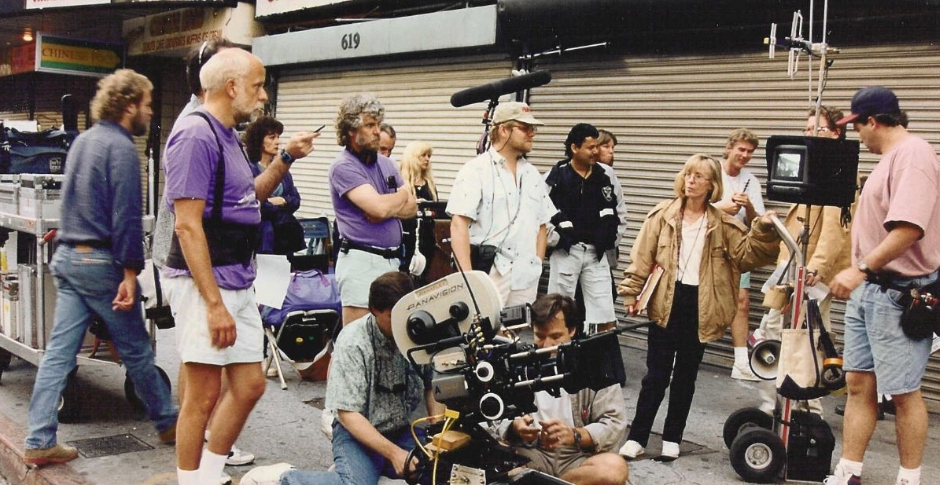
One of the things I tell my filmmaking students is always to think about all those millions of people that are going to cinemas watch their film and what it is they want tell them by it
You filmed many projects, which one do you like the most or are the most proud of?
Of all the projects I have made I am the proudest of V. I created the story and I think there’s a timeless quality about V since it’s not a story that goes away. It’s a story that has its foundations all the way back in Spartacus, and the revolt of the slaves. It’s about an oppressed people living under a totalitarian regime, and how that power affects people. How some people will suck up to that power, like the Vichy French did during WW2. And other people will try and keep their heads down and think “I won’t bother them, they won’t bother me”. And ultimately it becomes about the heroes who say “No. This power is being abused and we have to fight back against it”. And that’s what the essence of V was.
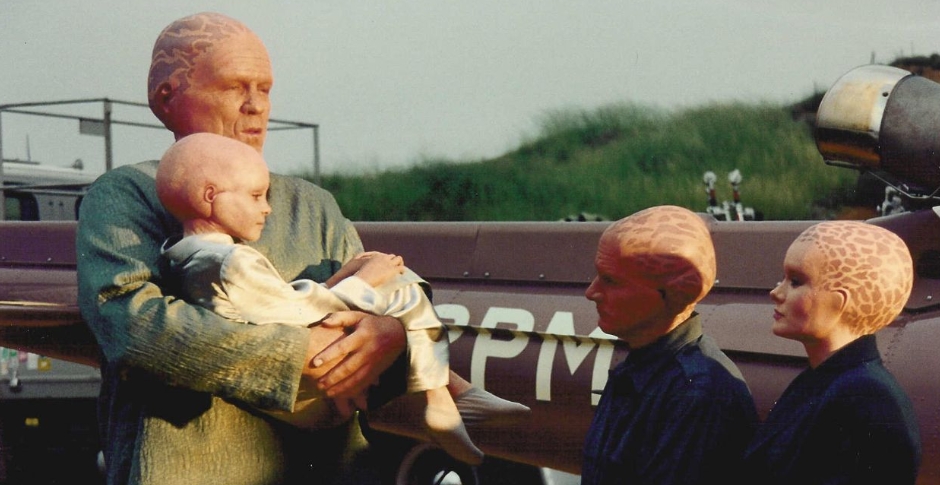
You filmed Alien Nation series according to the feature film and wanted to make V feature film from the series? Which way is harder to do?
Our series of alien nation was loosely based on the original feature film which was not very good and failed at the box office. Fox thought there might be a series and asked me to take a look. I realized what the series could be about was not just another buddy cop show but rather about intolerance discrimination and prejudice against the alien Newcomers. That gave the series a serious and profound importance socially that could be a learning experience for our audiences. It was extremely well received and audiences got the messages. And we got many awards.
Are you obsessed with sci fi? Slowly with AI, some of your fantasy topics may get for real? How do you view the way AI is entering our lives and no one know how it will finish. Are you a fan of it or opponent?
I think AI like any new technological advance has it’s upside and downsides but it can be a boom for society and science if it is used properly.
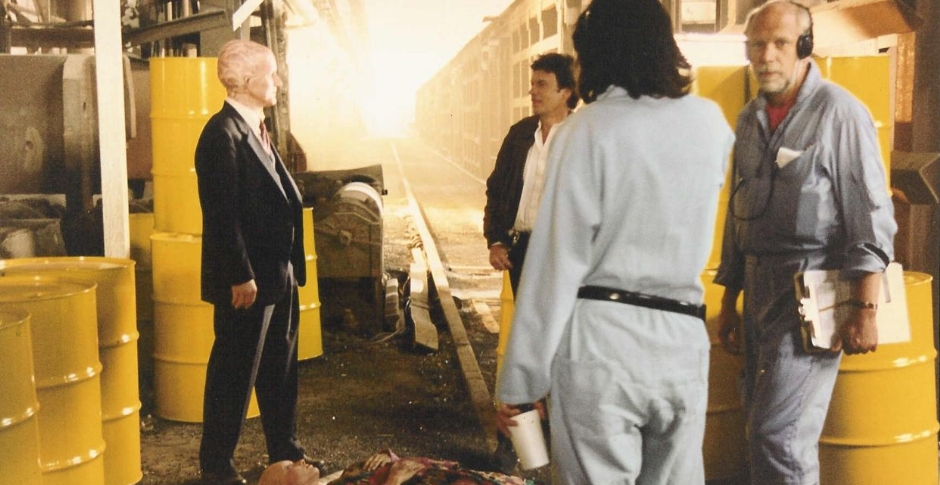
Don´t you feel that some current actions and pre-election promises of Donald Trump remind Sinclair Lewis book? Do you think he (Lewis) was the same visionary as George Wells?
Regarding what is going on in our country with this narcissistic, sociopath, spreader of lies who has skewed our country toward fascism and all the evils that pertain to it…Yes, it’s exactly the sort of warning that I was doing metaphorically in my original V. There have been many recent accounts in the press recalling what I had written back in 1983 and also what Saint Claire Lewis had written in 1935. I recognize that this right-wing trend is not confined to the USA currently but Trump and his cronies are wreaking damages that will not only hurt America but the world at large and will linger for many years even after they are out of power.
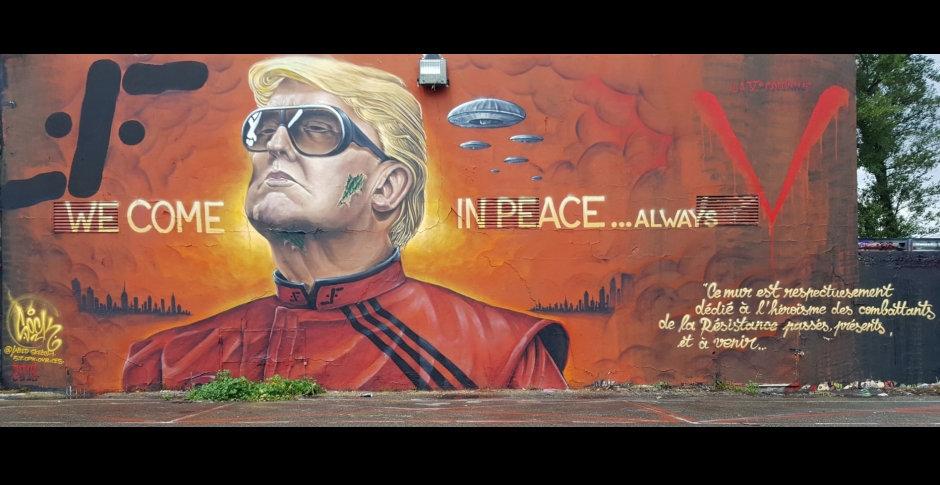
Thank you.
Photos, thanx: archiv Kenny Johnson


